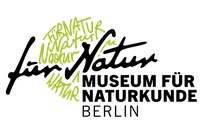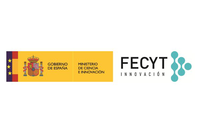EU-Citizen.Science
from 01/01/2019 until 31/12/2021
EU-Citizen.Science is a 3-year project, aimed to build the Platform for Sharing, Initiating, and Learning Citizen Science in Europe. The challenge that EU-Citizen.Science addresses is the increasing need for a place for exchange and networking, for a place that bundles, sorts and categorizes all information by guaranteeing high quality.
The European citizen science landscape is rapidly growing and gaining actors and fields of action. Its scientific, societal, and political impacts increase substantially and are widely recognised. However - and this is also to be welcomed - this is happening largely uncoordinated and without a common agenda. The platform is intended to create a common place in terms of communication, exchange, information gathering and networking.
Over a decade of activity in citizen science has resulted in an enormous range of approaches, tools, resources, projects and impacts; whilst this can be seen as a strength, it may also dilute effort, result in duplication or be a barrier to the newcomer. The understanding of what methods and approaches belong to citizen science, what quality criteria to apply and how to describe the added value for an innovative, creative, and sustainable Europe vary between different disciplines, sectors, and geographical regions.
As a 'Coordination and Support Action', the project is focused on communication, coordination, and support of activities related to citizen science. The consortium consists of 21 partners, who in turn act as multipliers and, through their participation in the EU-Citizen.Science project, build, strengthen or link national and/or disciplinary networks on Citizen Science. EU-Citizen.Science has engaged from the proposal stage the key actors in implementing citizen science initiatives at European level (either as project partners, third parties or project supporters), together with newcomers that will introduce citizen science practice in their respective countries, thus filling the gaps in the European map. The EU-Citizen.Science project involves 14 partners and 9 third parties, representing 14 European Member States and a variety of stakeholders ranging from universities, NGOs, local authorities, CSOs, SMEs and natural history museums. Many of the partners are already engaged in other SwafS projects related to RRI, co-creation and citizen science, as well as numerous initiatives at national or local level. We leverage the tremendous European potential in regard to capacities, skills, and know-how gained within the European projects and the varied stakeholder communities actively involved in citizen science.
Aim
The ambition of EU-Citizen.Science is to build, fill, and promote a sustainable platform and mutual learning space providing different tools, best practice examples and relevant scientific outcomes that are collected, curated, and made accessible to different stakeholders, ranging from interested citizens over scientific institutions up to politicians and public media in order to mainstream Citizen Science in Europe. This breakthrough will be pursued through three interconnected lines of activity: (i) coordination of citizen science actions and leveraging of existing resources in the presently fragmented landscape of Citizen Science in Europe, (ii) engagement of quadruple helix stakeholders at all levels (local, national and European), and (iii) creation of a mutual learning space and a set of comprehensive codesigned training modules for the different target audiences. Moreover, following a transparent, open and inclusive approach, EU-Citizen.Science will promote interdisciplinary, cross-border, cross-sector collaboration, and give rise to significant social innovation and new business models through the creation of new partnerships and the provision of novel sustainability-supporting tools.
Created June 29, 2021, 3:40 p.m.
Updated Oct. 26, 2021, 1:05 a.m.



